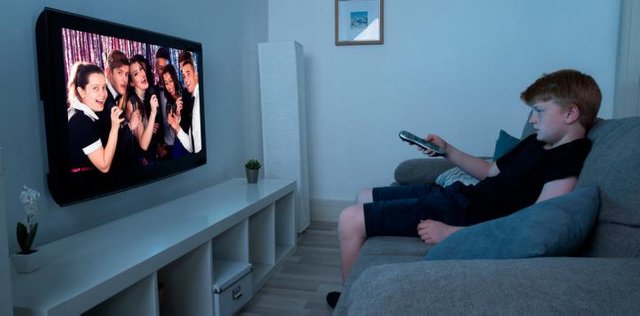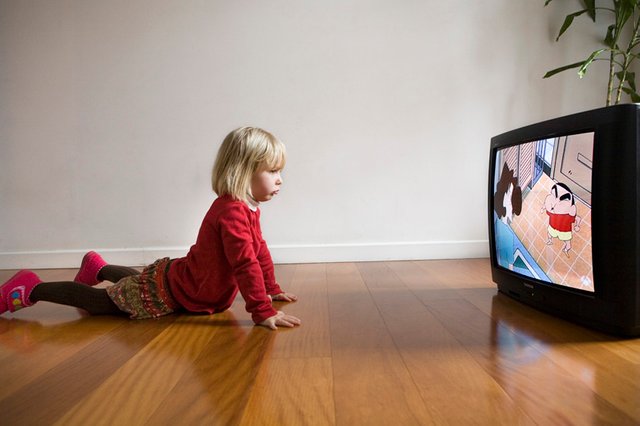Technology, enemy or ally of child development?
There is a lot of talk lately about the relationship of children with new technologies. Most of the time, in apocalyptic terms, speaking of the thousand and one dangers that threaten our little ones in the network of networks and in the possible risks to their health. Even a very popular article urges families to prohibit children under 12 from using electronic devices.
It is said that current research suggests that there are reasons for both optimism and concern, which depend on the content of the technology, the context in which the user is immersed in the technology, and the stage of development in which it finds itself. the user.
Therefore, and this is common sense, we must look with suspicion on the items that put in the same bag all children regardless of their age, and all kinds of technology. Exposure to new technologies does not cause the same effect in a 10-month-old child as in a 10-year-old child, nor does the same effect cause a gossip program to access Wikipedia.
That said, if there is an age group for which exposure to new technologies is harmful, this is that of infants and young children. The American Pediatric Association recommends that television and other multimedia devices should be avoided for infants and children under 2 years of age. Children's brains develop rapidly during these early years, and young children learn more from their interaction with humans, not screens.
The more time young children spend with television, the less time they spend interacting with their parents and siblings. The time children spend watching television, both with their parents and siblings or without them, had a markedly negative relationship with the time they spent interacting with their parents or siblings. This relationship, especially with the parents, and the stimulation it entails are fundamental for child development.
Pediatricians should discourage television viewing for children under 2 years of age and encourage more interactive activities that promote their proper brain development, such as talking, playing, singing and reading together.
The consequences of prolonged exposure to digital media and, therefore, of less human interaction in infants and young children have come to light in numerous scientific studies. A recent study by Taiwanese researchers, who observed children between 15 and 35 months of age, concluded that watching television increased the risk of delayed motor, cognitive and language development in children frequently exposed to television. The group of children frequently exposed to television in this study spent 67.4 minutes a day in front of the screen.
To get an idea, an extreme case can be seen in the children of an Austrian couple who were removed from custody because of child abandonment, leaving their children all day tied in silletas in front of the television. The eldest son, age 4 and a half, had the intellectual level of a two-year-old child, and could not talk. His sister, 3 years old, was found with serious problems of development and unable to walk. Obviously, these were not direct effects of television, but the time they spent without having freedom of movement or interact with other people.
As the child's development progresses, especially in terms of language, it is able to begin to capture what the screens transmit and receive certain benefits, if the multimedia content offered is of high quality. A recent review of scientific studies by Canadian researchers, which includes studies on children up to 5 years, said that these studies found positive associations between the viewing of children's programs and cognitive development by 13%, while the negative associations were of 8% It is to be assumed that the greatest negative impact occurred in the youngest ones and the positive one in the older ones, who are already beginning to acquire vocabulary, internalize concepts, learn songs, etc. However, the same review warns that this does not happen with generalist programs for adults, which, faced with a small number of positive associations estimated at 3%, registered 25% of negative associations.
Also, in this review of studies, reading stands as undisputed champion in the promotion of cognitive development, with 0% of negative associations against 60% positive associations. Once again, it is not due to the activity of reading itself, but because it is an activity that is done with parents or caregivers (at this age, children do not read alone), and the enormous benefits provided by the interaction with the reference adults.
The benefits of technologies are more palpable at school age, when children can benefit from their full potential. The didactic power of new technologies is beyond doubt when they have been introduced practically in all classrooms through computers and digital whiteboards. Traditionally, new technologies have been used in language learning, as it is a reinforcement for the acquisition of vocabulary but not grammar, as scientific studies point out. Now, many are the teachers who recommend didactic games related to other subjects, language, mathematics, to take advantage of the incentive that the use of new technologies involves children to promote their learning.
In any case, we must not forget that the time devoted by schoolchildren to screens is mainly subtracted from the interaction with parents and siblings. Other activities that, according to the study, are affected are the creative game and the duties. Therefore, it is very important the role of families in the empowerment of a good organization so that there is time for everything and so that the time spent on technological devices does not occupy more than the account.
In return, technology involves certain risks. The main one is the increase in violence, due to the abundance of violent content on television and videogames. In a scientific article on child aggression, he commented that spending a lot of time in front of the television promotes violent behaviors and fantasies, especially in preschool children, but that this effect was diminished if the children see the violent contents with the accompaniment of an adult to guide them.
On the other hand, when using the computer, risks are attributed to it such as:
- threats to the child's safety.
- exposure to inappropriate and violent content.
- bullying.
- Internet addiction.
- displacement of time spent on moderate / vigorous physical activity and sleep.
- vision problems.
They are not very different from those attributed to other digital media. The same article points out the need for adults to mark the guidelines to follow with the use of computers. A subsequent review advocates limited use to avoid the displacement of other activities, in addition to the inclusion of non-violent content and games, and pro-social activities, such as contact with family and friends, to avoid social isolation.
Behind the prolonged use of technology, other less obvious real causes often hide.

source
In conclusion, technology itself is not a problem for our children, the problem can come from the use that is made of it. Misuse or abuse can have dire consequences. However, with the proper accompaniment and guidance of families, we can turn technology into our ally in the face of personal growth.
Prohibiting technology is not only harmful, it is useless. It would be like banning them from riding in a car. We live surrounded by technology, and sooner or later, they will use it. And better know how to use it with a head. For this, once again, nothing better than having the best model to follow at home. It has already been commented previously that the behavior of parents exerts a great influence on their children in very diverse areas.
Let us be, then, what we want our children to be.


I agree, I do have to say though that technology should be limited the younger the age. This is based on experience.. Some use tech as a way to control and manage kids which I do disagree
It is like that, since most of them do it to avoid that the child has friendships that later damage his evolution as a person, and without wanting to do him a damage in the social development of the individual.
very interesting article!!! The story about the Austrian family is pretty scary!!! I think it is all about moderation. I believe it is ok to watch a bit of tv while parents are cooking or cleaning, resting getting ready for work...as long as there is still some good quality time between the family members.
It's just a testimony, but there are billions of cases at this time. It only remains for us to be attentive with our children.
Congratulations @frankcalvo! You have completed some achievement on Steemit and have been rewarded with new badge(s) :
Click on any badge to view your own Board of Honor on SteemitBoard.
To support your work, I also upvoted your post!
For more information about SteemitBoard, click here
If you no longer want to receive notifications, reply to this comment with the word
STOPGood article!
Definitively the technologies will soon reach levels of human attention 24 hours a day.
For some time now, communication with babies and/or children has been implemented with monitors or tablets in their cribs, this of course introduces them to digital communication and trains them for a new era.
However, it depends to a large extent on the responsibility of the parents that their children develop as children, socializing and performing recreational activities that allow them to adequately develop their psychophysical capacity.